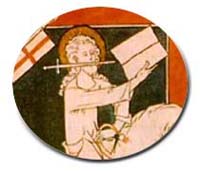Catholics Must Resist an Unfaithful Pope
Some conservative Catholics have a problem of conscience over criticizing the conciliar Popes when they teach or act against the established Tradition of the Church and the constant teaching of the previous papal Magisterium. For these Catholics, any words of censure or disapproval falls under the condemnation of “judging the Pope.”
They do not realize that what is forbidden in that condemnation is for a council or a King or Emperor to declare the Pope invalid and depose him from his function. When a Pope acts scandalously, such as Alexander VI in the Renaissance or John Paul II recently, the faithful are not forbidden to see and speak out about what is obviously wrong according to Catholic Morals and Faith.
To the contrary, they have the duty to carefully observe their actions and analyze them. If any is in conflict with the previous Magisterium it should be resisted by not obeying it and warning others to do the same. This is not “to judge the Pope,” as long as we do not pretend to declare him an invalid Pope.
To resist a bad Pope is to follow the orientation of great Saints and Doctors of the Church, as is the case of St. Thomas Aquinas.
St. Thomas Aquinas
In many passages of his works, St. Thomas upholds the principle that the faithful can question and admonish Prelates. For example:
“There being an imminent danger for the Faith, Prelates must be questioned, even publicly, by their subjects. Thus, St. Paul, who was a subject of St. Peter, questioned him publicly on account of an imminent danger of scandal in a matter of Faith. And, as the Glosa of St. Augustine puts it (Ad Galatas 2,14), ‘St. Peter himself gave the example to those who govern so that if they should stray from the right way, they will not reject a correction as unworthy even if it comes from their subjects’” (Summa Theologiae, Turin/Rome: Marietti, 1948, II-II, q.33, a.4).
Referring to the same episode, in which St. Paul resisted St. Peter “to his face,” St. Thomas teaches:
“The reprehension was just and useful, and the reason for it was not light: There was a danger for the preservation of evangelical truth. ... The way it took place was appropriate, since it was public and manifest. For this reason, St. Paul writes: ‘I spoke to Cephas,’ that is, Peter, ‘before everyone,’ since the simulation practiced by St. Peter was fraught with danger to everyone. In 1 Tim. 5:20, we read: ‘Admonish those who sin before everyone.’ This should be understood to refer to manifest sins, not hidden ones, since in the latter cases one should proceed according to the rules proper to fraternal correction” (Super Epistulas S. Pauli, Ad Galatas, 2, 11-14, lec. III, Turin/Rome: Marietti, 1953, nn. 83-84).
The Angelic Doctor also shows how this passage of the Scriptures contains teachings not only for Hierarchs but for the faithful as well:
“To the Prelates an example of humility was given, so that they do not refuse to accept rectifications from their inferiors and subjects; and to the subjects, an example of zeal and liberty so they will not fear to correct their Prelates, above all when the crime is public and entails a danger for many” (ibid., n. 77).
In his Comments on the Sentences of Peter Lombard, St. Thomas teaches how respectfully correcting a Prelate who sins is a work of mercy all the greater as the Hierarch’s position is higher:
“Fraternal correction, being a spiritual alms, is a work of mercy. But mercy is due mainly to the Prelate since he runs the greatest danger. Hence St. Augustine says in Regula (n. 11, PL 32, 1384): ‘Have pity not only on yourselves, but on them as well,’ that is, on the Prelates ‘among you who run a danger as high as the position they occupy.’ Therefore, fraternal correction extends also to Prelates.
“Furthermore, Ecclus. 17:12, says that God ‘gave to every one of them commandment concerning his neighbor.’ Now, a Prelate is our neighbor. Therefore, we must correct him when he sins. ... Some say that fraternal correction does not extend to the Prelates, either because man should not raise his voice against Heaven, or because the Prelates are easily scandalized if corrected by their subjects. However, this does not happen, since when they sin, the Prelates do not represent Heaven and, therefore, must be corrected. And those who correct them charitably do not raise their voices against them, but in their favor, since the admonishment is for their own sake. ...
"For this reason, according to other [authors], the precept of fraternal correction extends also to the Prelates, so that they may be corrected by their subjects” (IV Sententiarum, d. 19, q. 2, a. 2).

Posted on February 5, 2011


Related Topics of Interest
 The Popes Must Be Militant Guardians of the Flock The Popes Must Be Militant Guardians of the Flock
 Decadent Flocks Are the Result of Corrupt Pastors Decadent Flocks Are the Result of Corrupt Pastors
 One Sins by Not Becoming Duly Irate One Sins by Not Becoming Duly Irate
 Too Much Compassion Can Be an Excessive Cruelty Too Much Compassion Can Be an Excessive Cruelty
 When Mercy Is a Danger… When Mercy Is a Danger…
 It Can Be Wrong to Turn the Other Cheek It Can Be Wrong to Turn the Other Cheek
 It is Advisable to Frighten Sinners It is Advisable to Frighten Sinners
 When Silence and Complacence Are Sins When Silence and Complacence Are Sins

Related Works of Interest
|
|